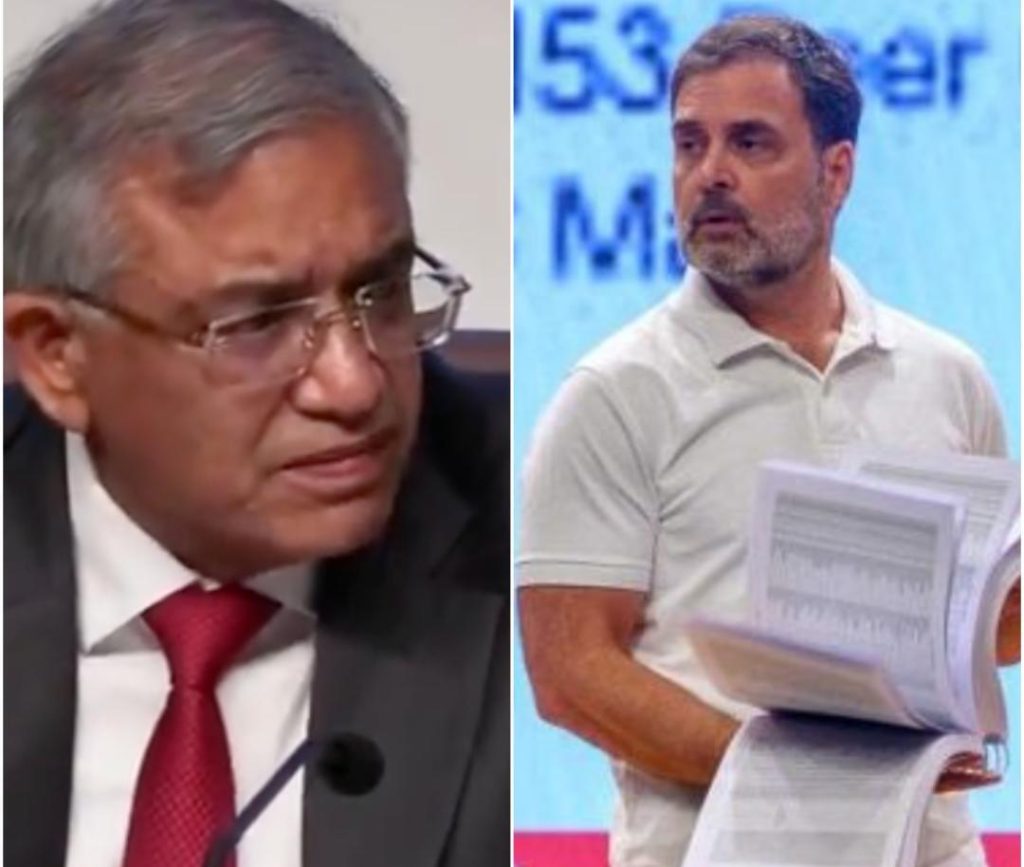
Vote Chori’ Phrase an Insult; Should We Share CCTV Footage of Mothers & Sisters Voting?: EC
The ongoing political rhetoric in India has reached new heights, with various leaders engaging in a war of words. The latest development comes from the Election Commission of India (EC), which has criticized the use of the phrase “vote chori” (vote theft) by Congress leader Rahul Gandhi. The EC has termed the term an insult to the Constitution and raised concerns over the demand for releasing surveillance footage from polling booths. In this blog post, we will delve into the controversy and explore the implications of sharing CCTV footage of voters.
The phrase “vote chori” has been gaining popularity, with Rahul Gandhi using it to claim that elections are rigged. However, the EC has taken umbrage with the term, calling it an insult to the democratic process. Chief Election Commissioner (CEC) Gyanesh Kumar has criticized the phrase, stating that it undermines the faith of the people in the electoral process.
“We do not use such language. We do not say that the election is rigged. We do not say that the votes are stolen. We do not say that the EVMs are tampered with. We do not say that the booths are captured. We do not say that the voters are intimidated,” Kumar said.
The EC’s criticism comes at a time when the opposition is accusing the ruling party of tampering with the electoral process. The demand for releasing CCTV footage from polling booths has been gaining momentum, with several opposition leaders calling for transparency. However, the EC has refused to share the footage, citing concerns over voter privacy.
“Should the Election Commission share the CCTV videos of any voter, including their mothers, daughters-in-law?” Kumar questioned. “We cannot share the footage of any voter, including their mothers, daughters-in-law. We cannot compromise on the privacy of the voters.”
The EC’s stance is understandable, given the sensitive nature of the footage. Sharing CCTV footage without proper authorization could compromise the privacy of voters, potentially leading to harassment or intimidation. Furthermore, the footage could be misused for political gain, undermining the integrity of the electoral process.
The controversy surrounding the “vote chori” phrase and the demand for releasing CCTV footage highlights the need for a balanced approach. While transparency is essential in maintaining the faith of the people in the electoral process, so is the protection of voter privacy. The EC’s refusal to share the footage is a reasonable step, given the potential consequences.
In addition, the EC’s criticism of the “vote chori” phrase serves as a reminder of the importance of respectful language in politics. The use of inflammatory language can create divisions and undermine the democratic process. Instead, political leaders should focus on engaging in constructive dialogue, addressing the concerns of the people in a peaceful and respectful manner.
The “vote chori” controversy also raises questions about the role of social media in shaping public opinion. The widespread dissemination of misinformation and fake news can create an atmosphere of distrust and confusion, potentially affecting the outcome of elections. It is essential for social media platforms to take measures to prevent the spread of misinformation and promote responsible reporting.
In conclusion, the EC’s criticism of the “vote chori” phrase and its stance on releasing CCTV footage are reasonable and necessary measures to maintain the integrity of the electoral process. Political leaders should focus on engaging in respectful dialogue and address the concerns of the people in a peaceful manner. Additionally, social media platforms must take steps to prevent the spread of misinformation and promote responsible reporting.
Source:






